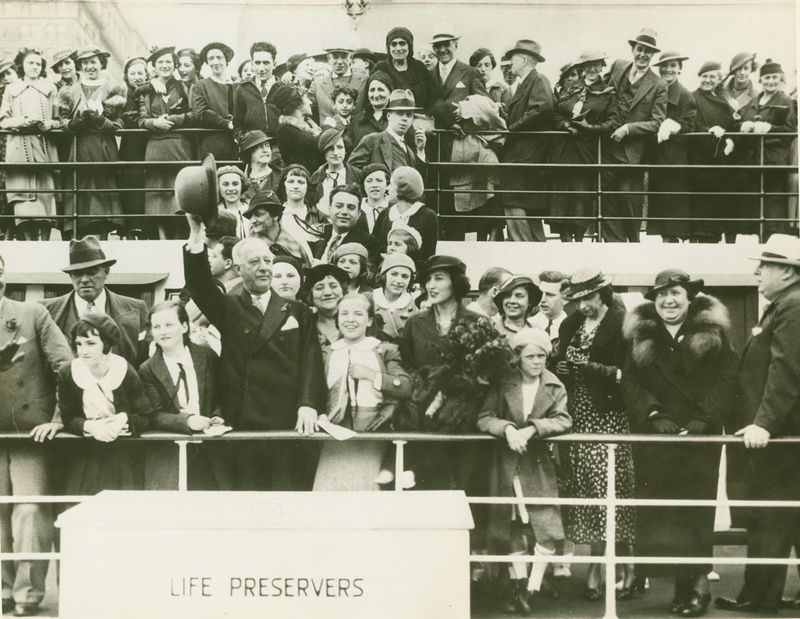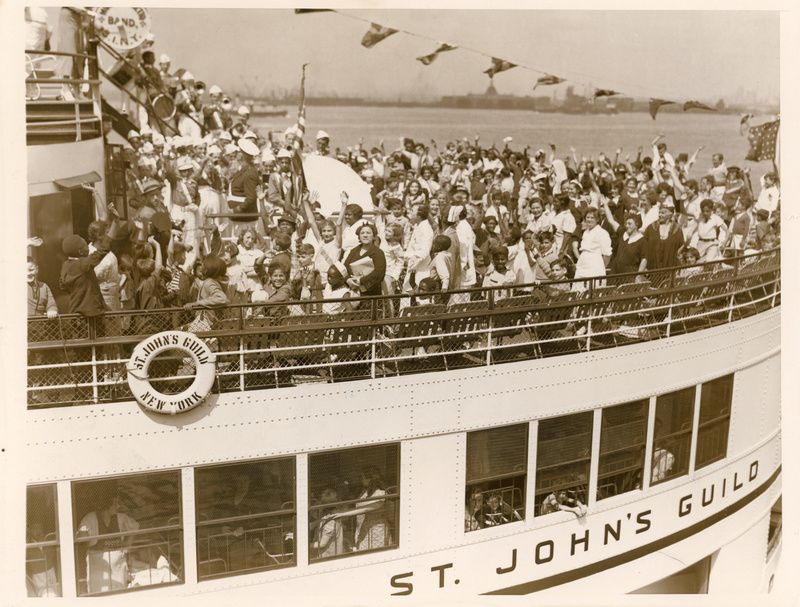♀️ The Trailblazing Women of Wall Street
Women have long shaped Wall Street—even when history tried to write them out.


When The Floating Hospital (TFH) was established in 1866, sea air was one of the few remedies available for the poor and sick children of New York City. Founded with a mission to offer aid “without regard to creed, color, or nationality,” TFH welcomed tens of thousands of thousands of patients and their mothers onto its boats each year to escape the polluted air of New York City’s streets. From 1872 through the early 2000s, five different ships were used as floating refuges. Learn more about each ship below, and join Untapped New York Insiders for a live virtual talk with TFH’s President and General Counsel, Sean Granahan, where we’ll dive into TFH’s bountiful historical photo archive!
This virtual talk on January 31st is free for Untapped New York Insiders! Not an Insider yet? Use code JOINUS and get your first month of membership for free.
The Floating Hospital was founded by St. John’s Guild of Trinity Church. Before the guild had enough funds to purchase its own boat, ferry rides were chartered for patients thanks to the generosity of wealthy donors. The first boat rides set sail on July 3, 1872. More than 18,000 impoverished children and caretakers enjoyed the fresh sea air and countryside picnics in that first year.
The first boat owned by TFH was a steamboat named River Belle, often referred to as The Floating Hospital of St. John’s Guild. This boat went into service for the hospital in 1875. The idea of quarantining the sick on boats was not new, however, TFH’s holistic approach was. Aboard The Floating Hospital, patients didn’t just rest and take medicine, they were part of a “health excursion that combined medical care, healthy eating, and entertainment into one experience.” Patients aboard TFH ships “enjoyed puppet shows, dancing, sing-a-longs, art classes, games, celebrity appearances, and movies” as they admired the stunning views of New York City passing by.

River Belle was renamed The Emma Abbot in honor of a famous opera singer and benefactor of the hospital. The next two boats were also named for a patron of the arts, Helen C. Juilliard. The Helen C. Juilliard I was launched in 1899 and was later sold to the city for use as a tuberculosis camp for children. In 1916, Helen C. Juilliard II set sail from the shipyard of the American Car Foundry Company in Wilmington, Delaware. It featured four wards, an operating room, an irrigation room, and a plant for sterilizing water, instruments, and bandages.
The fourth ship, Lloyd I Seaman, hit the waters in 1935. All of The Floating Hospital ships were built without engines. This helped to reduce vibrations and make them safer for the children on board. As a result, each vessel needed to be pulled by tugboats. The tugboat pilots and crews were an essential part of the hospital’s operations.

In 1977, the fifth and final boat was christened at a celebration at the South Street Seaport with New York City Mayor Abe Beame, Sandy, an Airedale from the Broadway musical Annie, and 4-year-old David Lando, the hospital’s 5 millionth passenger, in attendance. As hundreds of balloons floated into the sky, crowds cheered for The Lila Wallace, once again named after a benefactor. Lila was a publisher and philanthropist who, with her husband, DeWitt Wallace, created and published Reader’s Digest.
The Lila Wallace was decommissioned in the early 2000s and the hospital opened up a land-based facility in Long Island City. Today, The Floating Hospital continues to provide care, education, and essential supplies to New Yorkers in need. Patients of TFH can seek primary medical, dental, and behavioral healthcare services, in addition to select specialties such as optometry, podiatry, and cardiology. You can support the hospital’s mission by donating here.
Learn more about the history of the hospital and its current services in a talk with the President and General Counsel of TFH, Sean Granahan, where we’ll explore amazing photographs from the TFH photo archive!
Next, check out NYC’s Former Quarantine Islands and Hospitals
Subscribe to our newsletter